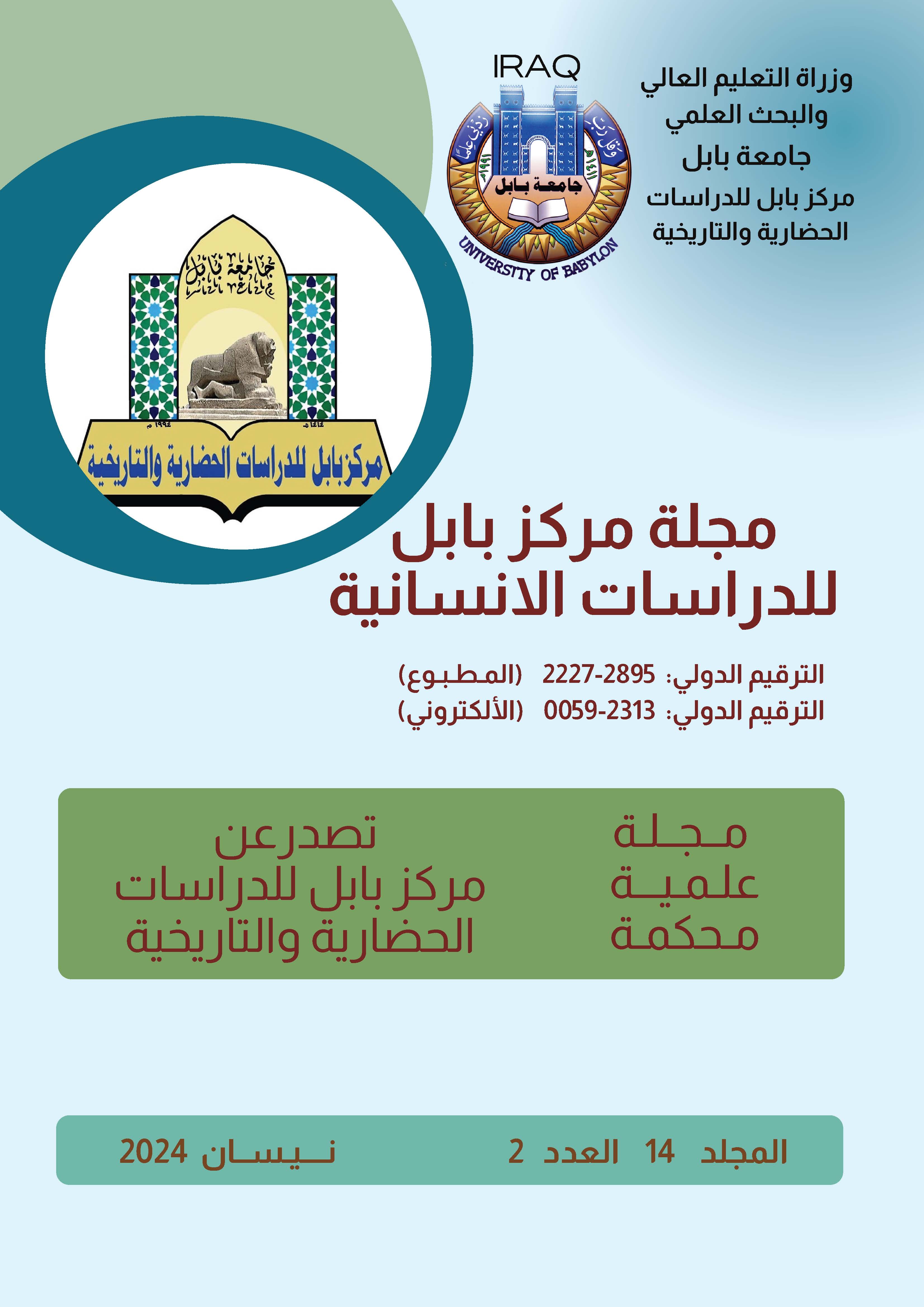تأثير العوامل الجغرافية والبشرية على النشاط الاقتصادي في بلاد المغرب العربي خلال القرنين الثالث – الرابع الهجريين
الكلمات المفتاحية:
المغرب، العامل الجغرافي، العامل البشريالملخص
ان النشاط الاقتصادي هو الاساس الذي تقاس به أهمية المدن وان اي دولة تقترن قوتها بمدى نشاطها الاقتصادي. وتوجد هناك عدة عوامل تؤثر وتحرك النشاط الاقتصادي وتنقسم هذه العوامل الى قسمين عوامل طبيعية تتمثل بنوع وطبيعة المنطقة منها ((ساحلية, جبلية, صحراوية)) اضافة الى عوامل المناخ والمتمثلة بالامطار, الانهار, أو عيون الآبار. وهناك أيضاً عوامل بشرية ويقصد بها هي التركيبة السكانية والذين كانوا في بلاد المغرب من مختلف الاجناس قد مارسوا انشطة اقتصادية مختلفة ومنهم ((القبائل المغربية, العرب, الطائفة اليهودية, اضافة الى السودان والافارقة)). وجميع هذه العوامل تلعب دوراً كبيراً في تحريك النشاط الاقتصادي على اختلاف انواعها وطبيعتها سواء أكان البعض منها يؤثر بصورة مباشرة او غير مباشرة, والنشاط الاقتصادي بصورة عامة يؤثر على الحياة السياسية للدولة فجميع الدول يرتبط استقرارها بنشاطها الاقتصادي وان اي خلل في اقتصاد دولة يؤثر على مجرى حياتها السياسية خصوصاً إن بلاد المغرب آنذاك كانت على صراعات مستمرة مع الخلافة العباسية, وقد سعى سلاطين المغرب على توفير الاوضاع المناسبة في سبيل انجاح نشاطهم الاقتصادي وقد دخل المغرب الأدنى مع علاقات تجارية متعددة مع كلاً من المغرب الاقصى والادنى.المراجع
التنزيلات
منشور
2024-04-30
إصدار
القسم
Articles







